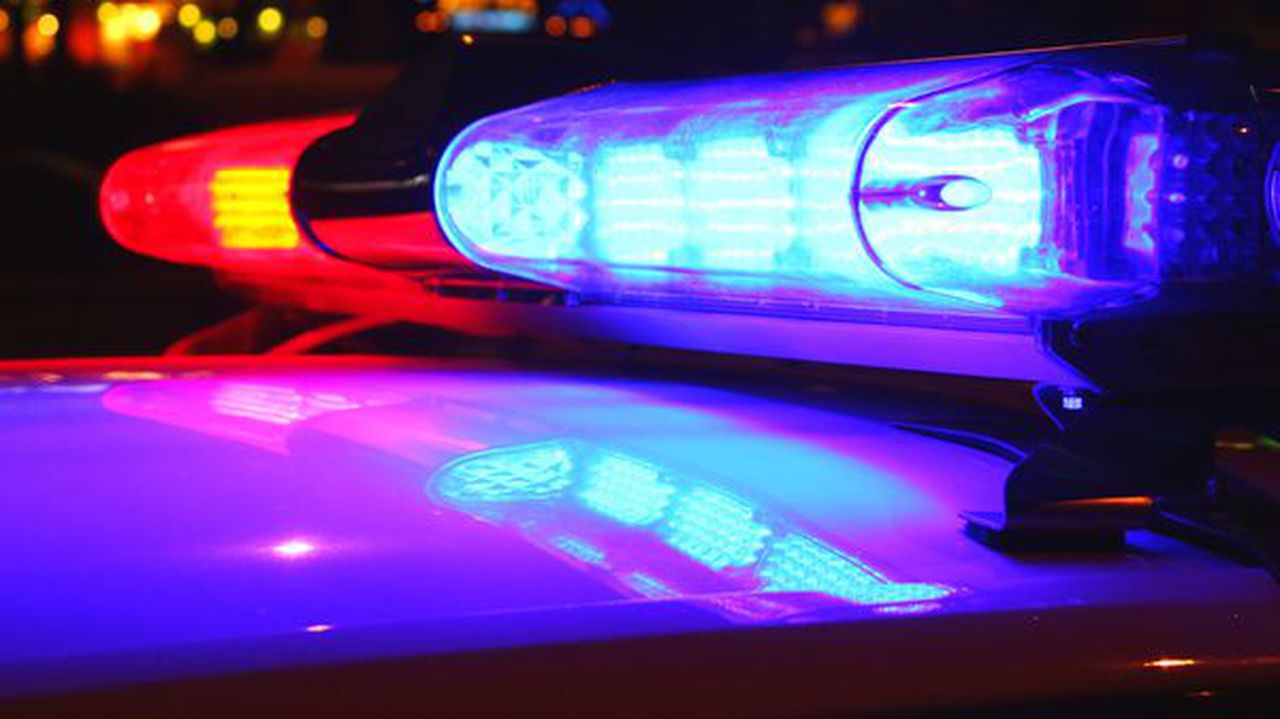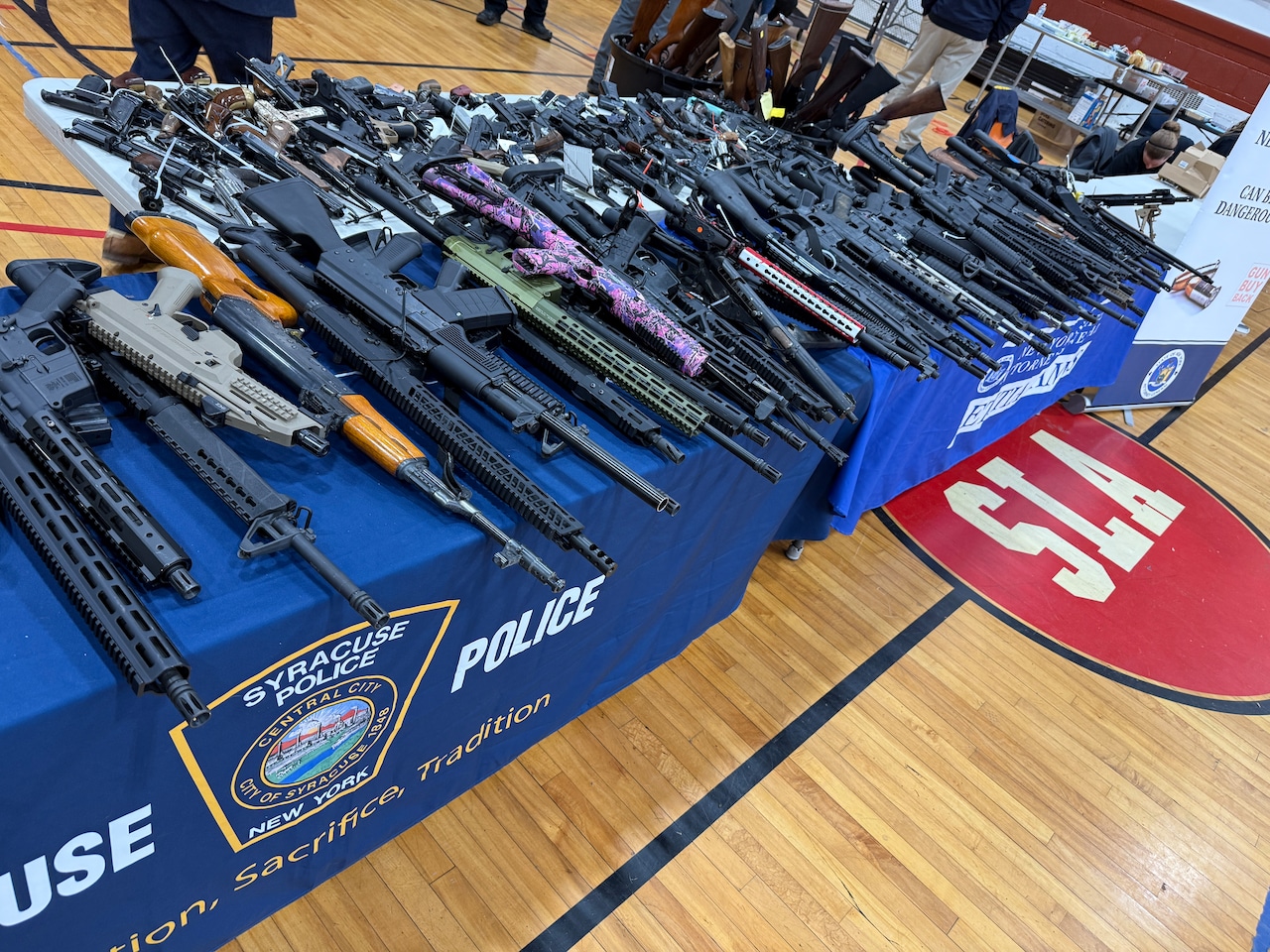
There’s been a rash of late-summer gun violence in Massachusetts but in the Legislature the situation around proposed gun law reforms hasn’t changed and Democrats, who have been away from Beacon Hill since late July, remain stuck in a procedural stalemate.
Eight people were shot near an ongoing Caribbean Carnival festival in Boston on Saturday, followed by shootings in Worcester on Sunday, also in the vicinity of a Carnival celebration.
Gov. Maura Healey said Monday that she was “heartbroken” by those events along with a “devastating spike in violence this summer” in Springfield.
“My thoughts are with the victims, their families and the entire communities that have been impacted by these senseless shootings,” the governor said in a statement issued while she was in Aspen, Colorado Monday for political meetings with Democratic governors.
Healey called for collaboration with local authorities on a “coordinated approach to get illegal guns off the streets” and to “address the root causes of violence.”
“The scope of this tragedy is mitigated only by the fact that no one was killed,” Suffolk County District Attorney Kevin Hayden said of the Boston shooting on Saturday. “But we see, once again, the consequences of too many illegal guns in the hands of too many people willing to use them, with zero regard for anyone in the path of their bullets. This happened against the backdrop of a city celebration, but also against the backdrop of a nation that cannot fashion a rational policy on reducing gun violence.”
At the state capitol, House Democrats this summer were primed a 140-page gun reform package for passage before the traditional August vacation period. But Rep. Michael Day’s omnibus bill, filed June 26, has yet to even receive a bill number, much less a public hearing, after it became jammed in a disagreement between House and Senate leaders over which committee should vet the bill.
The House attempted in June to send the bill to the Judiciary Committee, which Day co-chairs, before the Senate voted two weeks later to reroute it to the Public Safety Committee. The docket has not come back to the floor since then, and it remains in limbo without a resolution to the disagreeing votes.
After the contents of the bill generated controversy both in and outside of the State House, House Speaker Ronald Mariano on July 24 pressed pause to give representatives more time to “evaluate all of the proposals made” and “continue to speak with their constituents and provide feedback.”
“House leadership will continue to work on the bill until it is ready for debate this Fall,” Mariano wrote in an email to representatives, which was silent on how the Legislature might incorporate public feedback before moving on a bill.
Day pointed Monday to recent examples of gun violence and reiterated the autumnal timeline.
“The ongoing spate of gun violence plaguing our state, which continues to claim lives and cause irreparable harm to our neighborhoods, underscores the need to act urgently on gun safety legislation that enhances law enforcement’s ability to track and trace stolen, missing and illegal firearms, and expands our critical violence prevention efforts. The House is committed to modernizing our firearm safety laws and sending legislation over to the Senate this fall,” the Stoneham Democrat said in a statement to the News Service.
On the Senate side of the building, Majority Leader Cynthia Stone Creem reported Monday that she had already held 10 or 15 private meetings with senators, activists, and other stakeholders as the Senate prepares to draft a gun-related bill of its own.
Creem told the News Service that she had been tasked by Senate President Karen Spilka with conducting the fact-finding meetings “with whoever is interested, to … just talk about ideas and things that might be in a bill that the Senate would expect to do in the fall or at least in the session.”
“I don’t have a timeline right now. Even though it’s [the summer recess], my staff and I have been meeting virtually with many of my colleagues just to see where members of the Senate are with the issues,” Creem said. She added that she assumed Senate action on a firearms bill would follow House passage of a bill on the same topic.
The Newton Democrat said “we’re going to meet, we’re meeting with the gun owners, we’re meeting with chiefs of police, we’re meeting with colleagues” to find areas of “consensus.”
Outside of such private meetings, interested citizens or lobbyists have found little official forum to offer their feedback on Day’s omnibus bill, or on 47 other gun-related bills sitting in the Joint Committee on Public Safety.
Co-chair Sen. Walter Timilty’s office confirmed Monday that no hearings had yet been scheduled on those proposals.
“We continue to look forward to collaborating with the House chairman [Rep. Carlos Gonzalez] on coordinating a hearing in the future for the 47 gun-related matters that are already before the committee,” chief of staff Donald Siriani said.
Jim Wallace, longtime executive director of the Gun Owners Action League (GOAL), said he felt it was “incredibly important for the public to have a say” on Day’s 140-page bill, which he called “the greatest attack on civil rights from a Massachusetts political leader in modern history.”
“And also for experts to actually have a say, for a change. Because we haven’t really been part of this process,” Wallace added.
Meantime, the calendar for a gun reforms debate is “kind of in flux,” Wallace said.
“So you know the bill that Chairman Day released, that piece of garbage of a bill, never made it to a committee,” he said. “So I mean everything’s kind of up in the air, because now the Senate is saying they’re going to do their own thing, and they’re forming a working group as we speak to do that. So whatever their timeline is, who knows?”
Massachusetts political leaders often point to the state’s firearm laws as being among the strictest in the country, but also now in need of adjustments in the wake of the U.S. Supreme Court’s Bruen decision of 2022. Day said in June that his bill would also address “gaps in our criminal laws.”
“The licensing laws that we have on the books work, right? We’ve got the lowest rate of gun deaths in the continental U.S. of all gun deaths,” Day said at the time he filed his bill. “The rate of gun deaths is still increasing, as they are nationwide, and Massachusetts isn’t immune to that.”
Increasing focus has been placed on so-called ghost guns, which according to the U.S. Department of Justice are “often assembled from kits, do not contain serial numbers, and are sold without background checks, making them difficult to trace and easy to acquire by criminals.”
Last weekend’s violence at the Boston Caribbean festival allegedly featured a ghost gun with an extended magazine capable of holding 31 rounds, which led to a 17-year-old boy being charged with illegal possession of a machine gun, the Boston Globe reported Monday. Another 30-year-old suspect was charged with machine gun possession for allegedly carrying a Glock pistol modified with a sear switch that allows for continuous firing.
In Springfield, where Rep. Bud Williams is askingfor a “greater presence” from State Police and federal law enforcement agencies, Police Superintendent Cheryl Clapprood said this month that there are “more fully automatic firearms and ghost guns than ever before.”
And Springfield Mayor Domenic Sarno said the “recent targeted criminal activity involving illegal guns” has involved “[c]riminal suspects that often times have prior arrests and pending charges, most of the time involving illegal and ghost guns.”
Day’s bill would require serialization and registration of both firearm barrels and receivers in an effort to combat the homemade weapons. On the Senate side, Creem has filed her own ghost gun bill, which remains in the stack of legislation in the Public Safety Committee that has yet to receive a public hearing.
Wallace said the gun owners’ organization supported a bill during the last legislative session that was also aimed at ghost guns.
“It doesn’t touch our people at all. It just hammers anybody who’s unlawfully dealing or manufacturing or any of that kind of stuff,” he said. “So if you really want to go after the criminal use of whatever, here’s our bill. Doesn’t touch our people. What’s the problem? And we gave them that language. They didn’t even consider it.”
Among other provisions, the Day package would also set up an “enhanced tracing system to track firearms used in crimes,” impose a live firearm training requirement for people seeking a license to carry, step up “requirements for reporting lost, stolen and surrendered firearms,” and prohibit “the carrying of firearms in schools, polling places, government buildings and into private property without the permission of the owner,” according to a summary from the chairman’s office.





